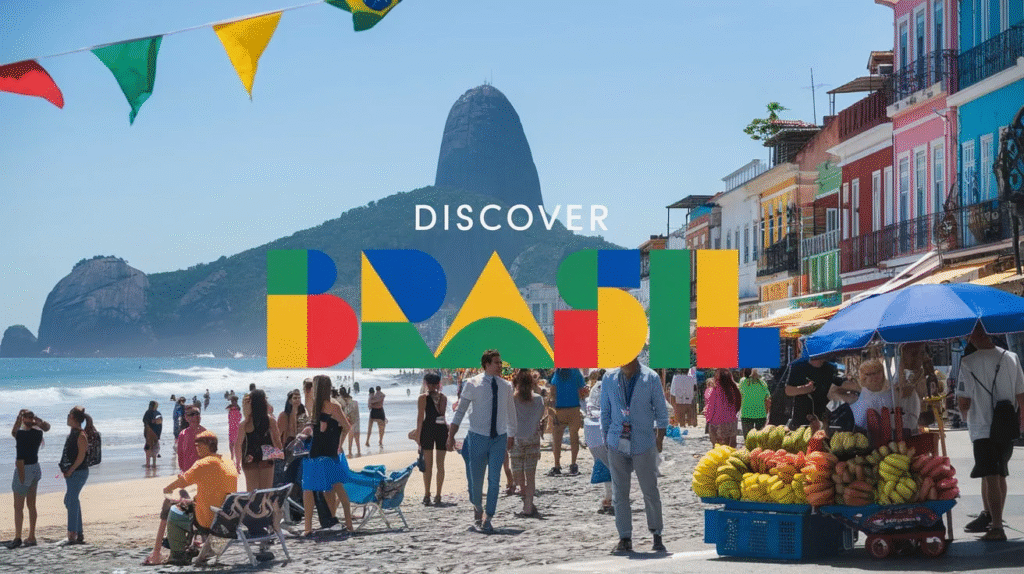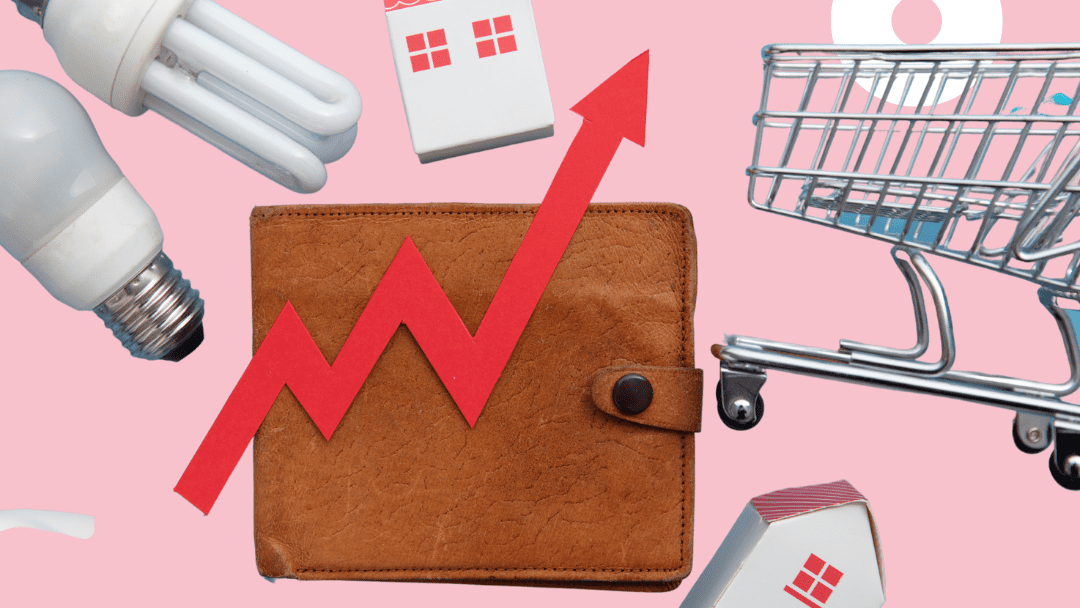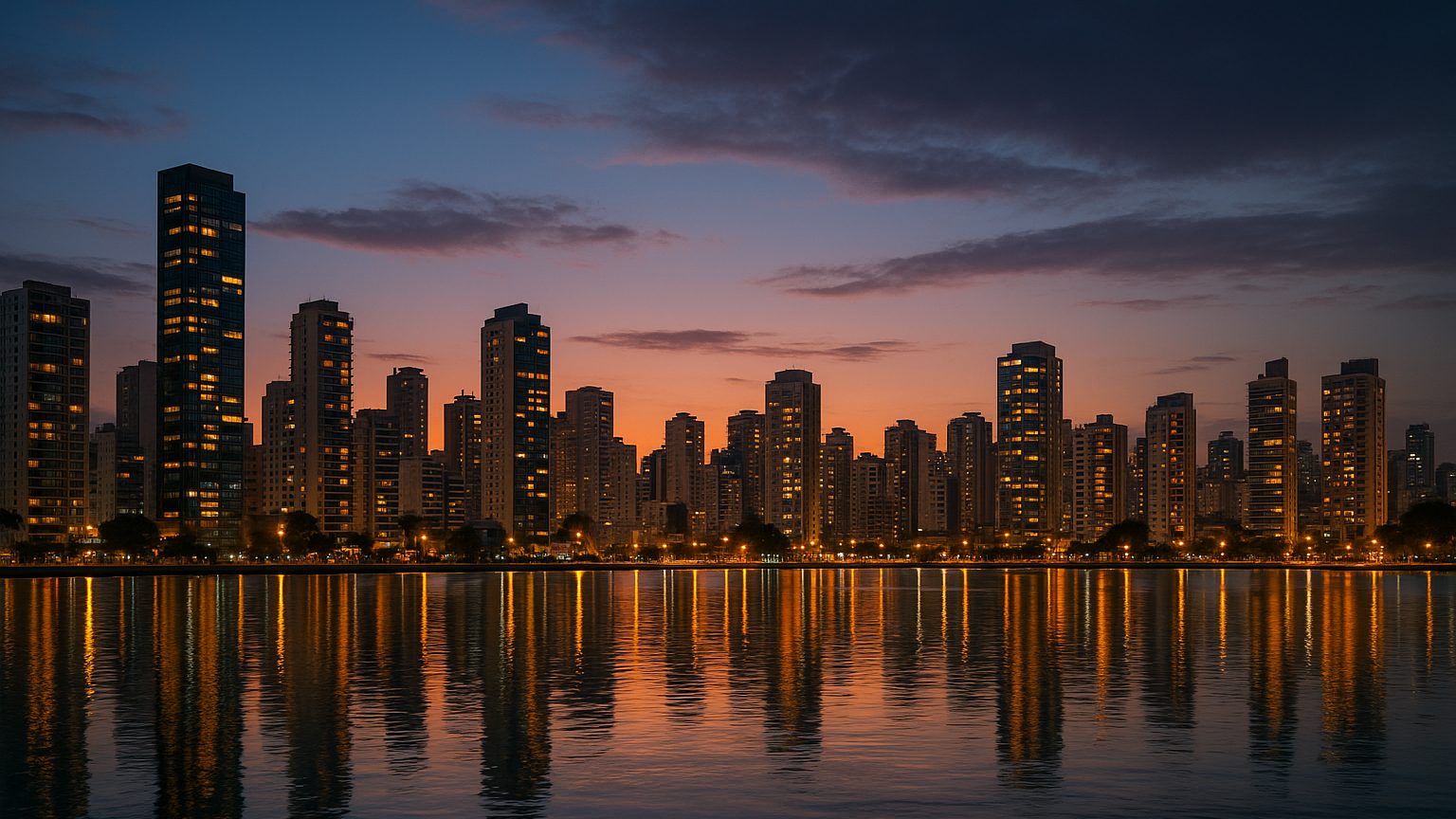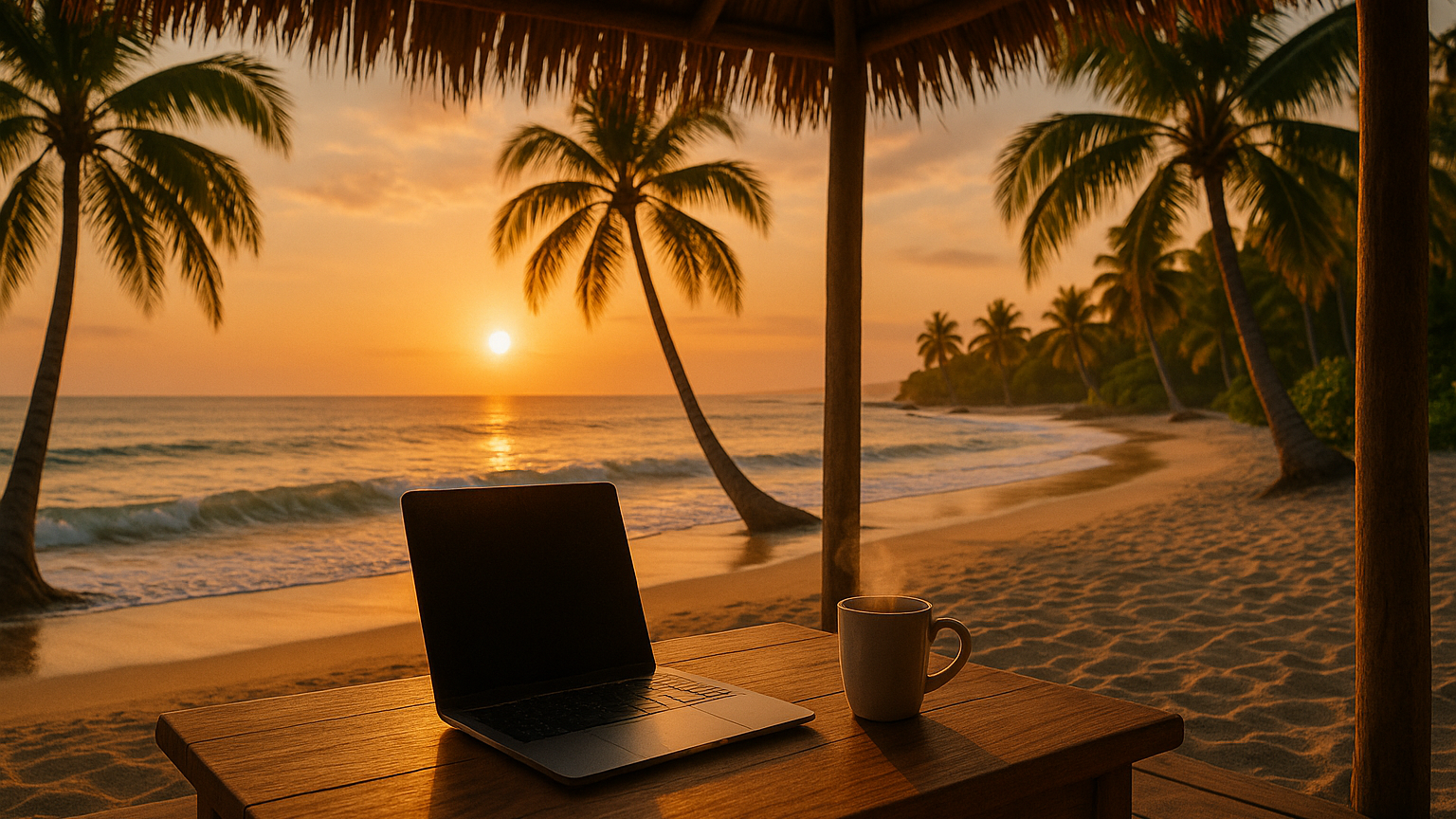Introduction
Welcome to Brazil, a vast and diverse country that is quickly becoming a magnet for digital nomads. This guide explores Brazil digital nomad visa requirements 2025, the cost of living in Brazil for digital nomads, and the best cities in Brazil for digital nomads. We also demystify Brazil digital nomad taxes and residency rules for remote workers. Brazil is the largest economy in Latin America, spanning over 8.5 million km² (3.28 million sq mi). Its landscapes range from Amazonian rainforests to bustling megacities and tranquil beaches. For North Americans and Europeans, travel times are reasonable; Rio de Janeiro is roughly 9,180 km (5,705 mi) from Toronto and 8,400 km (5,220 mi) from London.
Brazil operates mostly on Brasília Time (BRT, UTC‑3), which places it one to four hours ahead of Eastern Standard Time, making collaboration with European and North American offices manageable. Most remote workers can enjoy warm weather year‑round; the average temperature in 2024 was 25.02 °C (77.04 °F)—the warmest since 1961. This digital nomad in Brazil guide has been optimized for search engines and LLMs. It uses natural language, integrates keywords organically, and offers a complete overview of what you need to know to live and work remotely in Brazil in
Why Choose Brazil as a Digital Nomad?

Time Zone Advantage
Brazil’s BRT (UTC‑3) is convenient for coordinating with North American east‑coast clients (1 hr difference) and European offices (4–5 hr difference in winter). Digital meetings can be scheduled mid‑morning or afternoon with minimal disruption.
Nature and Culture Diversity
Brazil boasts 7,491 km (4,655 mi) of coastline, with tropical beaches, surfing spots, and warm water. Inland, you can trek through rainforests, explore waterfalls, or cycle along mountainous highlands. Cultural experiences include Afro‑Brazilian rhythms in Salvador, modern art in São Paulo, and colonial architecture in Ouro Preto.
Affordability
Despite inflationary pressures, the country remains affordable compared to Western Europe or North America. A coffee in Rio costs about BRL 7 (~USD 1.28 / EUR 1.10), and a coworking desk in Curitiba might be BRL 350 per month (~USD 64 / EUR 55).
Friendly Remote Work Ecosystem
Brazil’s coworking market has exploded; there were roughly 3,000 coworking spaces nationwide in 2024. They provide stable fibre internet (many plans exceed 300 Mbps) and community events. Digital nomads will find tech meet‑ups, language exchanges, and startup incubators, particularly in São Paulo, Florianópolis, and Belo Horizonte.
Flight Connectivity
Major hubs like São Paulo/Guarulhos and Rio de Janeiro/Galeão handle millions of passengers yearly; the sector moved 118 million travellers in 2024. These airports offer direct flights to Europe (Lisbon, Paris, Madrid, London) and North America (Miami, Orlando, Toronto, New York), providing easy return trips or onward travel across South America.
Language and Culture
Portuguese (Português) is the official language, but remote workers find that basic English is spoken in tourist zones and by younger Brazilians. Learning some Portuguese phrases greatly improves integration and communication. Brazilians are known for warmth and hospitality; expect to be invited to a barbecue or a samba night within weeks of arriving.
Watch Outs: Safety, Health and Practicalities
Safety and Crime
Brazil’s homicide rate in 2023 fell to 21.2 per 100,000 inhabitants, the lowest in 11 years. However, crime is unevenly distributed: the South, São Paulo, the Federal District, and Minas Gerais are relatively safer, while the North and Northeast have higher rates. As a Digital nomad in Brazil, you should use common‑sense precautions: avoid deserted areas at night, use official taxi or ride‑hailing services, and keep valuables discreet. In big cities, apps like Cadu (Cadastro de Roubos) help avoid risk‑prone zones.
Health and Healthcare
Brazil’s public healthcare system (Sistema Único de Saúde – SUS) offers free emergency care, but non‑residents may face long waits. Private hospitals and clinics in large cities offer excellent care, but they are expensive without insurance. All digital nomad visa applicants must present proof of health insurance covering the entire stay. For peace of mind, consider international plans that cover repatriation. Routine vaccinations (hepatitis A/B, yellow fever, tetanus) should be up to date; certain regions require yellow‑fever certificates.
Weather and Climate
Brazil straddles the equator and the Tropic of Capricorn, meaning climates vary greatly. The Amazon region is equatorial (hot/humid year‑round), the Northeast has semi‑arid dry seasons, and the South experiences subtropical winters. Image Prompt 3 (later) will depict a climate map. Seasonal factors influence housing costs; high season (December–March) sees higher rents in coastal cities due to holidays and Carnival.
Power and Plugs
Brazil uses plug type N (NBR 14136) with two or three round pins. Standard voltage depends on region: many states use 127 V (similar to 110 V), while others use 220 V; frequency is 60 Hz. Check your accommodation’s voltage and bring a universal adapter.
Taxes and Residency
Foreigners holding a temporary visa who stay in Brazil for up to 183 days (consecutive or non‑consecutive) within a 12‑month period remain non‑residents for tax purposes; exceeding 183 days or obtaining a permanent visa makes you a tax resident. As a non‑resident, only Brazilian‑source income is taxed; foreign income remains untaxed. To avoid establishing tax residency inadvertently, keep visits short or file a “Declaração de Saída Definitiva” (declaration of definitive departure) if you leave permanently.
Image Position 3 (Insert Image here)
Visa Process: Brazil’s Digital Nomad Visa Explained
Brazil introduced its digital nomad visa—Visto Temporário XIV (VITEM XIV)—in late 2021 to attract remote workers. Resolução Normativa 45 defines a digital nomad as a foreigner who “performs remote work using information and communication technologies, linked to a foreign employer”. Applicants cannot provide services to Brazilian companies.
Eligibility and Documents
To qualify, you must prove a monthly income of USD 1,500 (~ BRL 8,160 / EUR 1,260) from abroad or hold savings of at least USD 18,000 (~ BRL 97,920 / EUR 15,117). Required documents include:
- Passport valid for at least six months.
- Completed online visa form (RER).
- Recent passport photo (3 cm × 4 cm / 1.2 in × 1.6 in).
- Certificate of criminal record from countries where you have lived in the past five years
- Proof of residence (utility bill or lease) covering the last 12 months.
- Health insurance valid in Brazil for the entire stay
- Employment contract or service agreement demonstrating your remote work relationship with a foreign employer
- Income evidence: bank statements or pay slips verifying the USD 1,500 monthly income or USD 18,000 savings
- Declaration confirming you can work remotely, executed at the Brazilian consulate.
Step‑by‑Step Application
- Complete the Online Form (RER): Fill out the visa request at the Brazilian Ministry of Foreign Affairs’ Portal Consular. Upload your photo and documents. Print the receipt.
- Pay the Consular Fee: Fees vary by country; expect around USD 100 plus service fees. Payment must be made to the consulate.
- Book Appointment via e‑Consular: Create an account on the e‑Consular platform, upload scanned documents and the RER receipt, and request an appointment at the consulate in your home country
- Attend In‑Person Interview: Bring original documents, apostilled or legalized and translated if necessary
- Wait for Processing: Processing typically takes 15–30 days. The visa grants an initial stay of 12 months, renewable for another 12 months
- Register with the Federal Police: Within 90 days of arrival, register at a Polícia Federal office in Brazil to obtain your residence card.
- Extension: To renew, re‑submit income proof, updated criminal record certificates, and pay a renewal fee
Common Pitfalls
- Documents not apostilled or translated correctly often cause rejections. Ensure all foreign documents meet Brazilian consulate requirements.
- Overstaying the visa or working for a Brazilian company can lead to cancellation and fines.
- Income thresholds are strict; if your earnings fluctuate, maintain proof of savings above USD 18,000.
Cost of Living and Budgets

Brazil’s affordability depends on location, lifestyle, and currency fluctuations. The following table shows realistic monthly budgets for a digital nomad in Brazil ‘s top 10 cities, broken into budget, comfortable, and premium categories. The amounts include rent (one‑bedroom or studio), coworking, internet, local SIM/eSIM, groceries, transport, gym, and leisure. All costs reflect August 2025 exchange rates.
Monthly Budget Table
| City | Budget (BRL; USD; EUR) | Comfortable (BRL; USD; EUR) | Premium (BRL; USD; EUR) |
|---|---|---|---|
| Rio de Janeiro | 5,000; 919; 787 | 9,000; 1,654; 1,417 | 15,000; 2,757; 2,362 |
| São Paulo | 6,000; 1,103; 945 | 10,000; 1,838; 1,575 | 17,000; 3,125; 2,677 |
| Florianópolis | 5,000; 919; 787 | 8,000; 1,471; 1,260 | 12,000; 2,206; 1,890 |
| Curitiba | 4,000; 735; 630 | 7,000; 1,287; 1,102 | 11,000; 2,022; 1,732 |
| Belo Horizonte | 4,500; 827; 709 | 7,500; 1,379; 1,181 | 12,000; 2,206; 1,890 |
| Recife | 4,000; 735; 630 | 7,000; 1,287; 1,102 | 10,000; 1,838; 1,575 |
| Salvador | 4,200; 772; 661 | 7,000; 1,287; 1,102 | 11,000; 2,022; 1,732 |
| Brasília | 5,000; 919; 787 | 9,000; 1,654; 1,417 | 14,000; 2,574; 2,205 |
| Fortaleza | 4,000; 735; 630 | 6,500; 1,195; 1,024 | 9,500; 1,746; 1,496 |
| Natal | 3,800; 699; 598 | 6,500; 1,195; 1,024 | 9,000; 1,654; 1,417 |
Budget indicates a modest lifestyle: shared apartment outside the tourist zone, local food, limited leisure. Comfortable allows a private apartment in a central neighbourhood, regular dining out, and occasional weekend trips. Premium covers upscale rentals, fine dining, frequent travel, and gym memberships.
Typical Expenses
- Rent: In Rio’s Zona Sul, a one‑bedroom apartment might cost BRL 3,000 (≈ USD 552 / EUR 472) per month. In Florianópolis, similar housing can be BRL 2,200 (≈ USD 404 / EUR 346).
- Coworking: Daily passes start at BRL 50 (≈ USD 9 / EUR 8); monthly unlimited plans range from BRL 400–800 (USD 74–147 / EUR 63–126) depending on city.
- SIM/eSIM: Pre‑paid SIM cards cost about BRL 10 (≈ USD 2 / EUR 2) and 10 GB data packages are BRL 40 (≈ USD 7 / EUR 6). eSIM packages from international providers cost more but offer convenience.
- Groceries: A week’s groceries for one person cost around BRL 200–300 (USD 37–55 / EUR 32–47).
- Transport: Public transit tickets range from BRL 4–6 (USD 0.74–1.10 / EUR 0.63–0.95). Taxi and ride‑hailing fares are cheaper than in North America; a 20 km (12.4 mi) ride in São Paulo might be BRL 40 (USD 7 / EUR 6).

Choosing Your Brazilian Base
Brazil offers varied environments; your choice depends on your interests and work needs. Below, we profile major cities.
Rio de Janeiro
- Vibe: Iconic beaches, carnival culture, and a high concentration of tourists.
- Internet & Coworking: Fibre connections widely available; coworking spaces in Copacabana, Ipanema, and the downtown area.
- Climate: Tropical; average temperatures range 23–29 °C (73–84 °F). Rainfall peaks in summer.
- Safety: Petty theft is common in tourist zones; choose secure accommodation and use ride‑hailing.
São Paulo
- Vibe: Business capital, cosmopolitan, endless dining and nightlife.
- Internet & Coworking: Best infrastructure in Brazil. Many coworking chains and tech hubs around Avenida Paulista.
- Climate: Subtropical; 12–25 °C (54–77 °F) in winter, 18–30 °C (64–86 °F) in summer. Urban heat but cooler nights.
- Proximity: Two major airports (Guarulhos and Congonhas) connect to domestic and international destinations.
Florianópolis
- Vibe: “Silicon Island” with a balanced lifestyle; beaches, surfing, and a growing startup ecosystem.
- Internet: Fibre and satellite connections provide speeds up to 1 Gbps.
- Climate: Subtropical; winters mild (13–22 °C / 55–72 °F), summers warm (20–30 °C / 68–86 °F).
- Community: Many digital nomads and remote workers; meet‑ups at cafés and beaches.
Curitiba
- Vibe: Green, organized, and European‑inspired. Known for urban planning and public transport.
- Internet: Reliable fibre; coworking spaces are less numerous but high quality.
- Climate: Cooler; winter temperatures can drop to 8 °C (46 °F), summers reach 28 °C (82 °F).
- Cost: Lower rents and living costs compared to coastal cities.
Belo Horizonte
- Vibe: Friendly locals, strong gastronomy (especially cheese bread and craft beer).
- Internet: Fibre widely accessible.
- Climate: Mild year‑round; 16–28 °C (61–82 °F).
- Proximity: Gateway to mountains of Minas Gerais; day trips to historical towns.
Recife & Salvador
- Vibe: Rich Afro‑Brazilian heritage, colonial architecture, and warm beaches.
- Climate: Tropical; 24–31 °C (75–88 °F) almost year‑round.
- Internet: Good coverage in urban centres; slower in remote areas.
- Safety: Mixed; research neighbourhoods before renting.
Brasília
- Vibe: Planned city with modernist architecture and wide avenues.
- Internet: Excellent; coworking spaces near government and business districts.
- Climate: Tropical savanna; distinct wet (Oct–March) and dry (Apr–Sept) seasons, temperatures 15–30 °C (59–86 °F).
- Air Travel: As the capital, flights to all major Brazilian cities.
Fortaleza & Natal
- Vibe: Coastal lifestyle with year‑round sunshine, kite surfing, and sand dunes.
- Internet: Improving; some areas have gigabit fibre.
- Climate: Hot; 25–31 °C (77–88 °F). Strong trade winds.
- Cost: Lower cost of living; fewer coworking spaces but growing.

Practical Logistics for Daily Life
SIM & eSIM Setup
Three major carriers—Vivo, Claro, and TIM—offer pre‑paid plans. To buy a SIM, you need your passport and sometimes a CPF (Cadastro de Pessoas Físicas) number. Activation is immediate, and data can be topped up via apps or physical vouchers. eSIM plans from providers such as Airalo or Nomad can be installed before arrival, although they cost more.
Getting a CPF
A CPF is the Brazilian tax ID required for opening a bank account, signing leases, or buying SIM cards. Foreigners living abroad must apply at a Brazilian consulate; the service is free but requires completing the CPF form, providing an ID, birth or marriage certificate, and a selfie with your document. Those already in Brazil can apply at a Receita Federal office or partner bank branches. Without a CPF, payment apps like Pix (Brazil’s instant payment system) and some e‑commerce platforms may not work.
Banking & Pix
Opening a local bank account simplifies bill payments and reduces exchange fees. Traditional banks (Itaú, Banco do Brasil) require a CPF and proof of address, while digital banks (Nubank, Inter) often accept passports but still require CPF. Pix allows instant transfers 24/7 using keys (email, phone number, CPF). Once your CPF is registered, you can register a Pix key via your bank’s app.
Coworking Etiquette
Brazilian coworking spaces have casual atmospheres but expect respect for shared areas. Do not make loud calls in open spaces; reserve meeting rooms. Many spaces offer unlimited coffee (café) and water; tipping the barista is not obligatory. Keep your desk clean and be open to socializing—it’s part of Brazilian work culture.
Transport and Travel
Domestic airlines (Gol, Latam, Azul) connect all major cities. Flights from Rio to São Paulo take about 55 minutes, covering 370 km (230 mi). Long‑distance buses are comfortable and cheaper but slower (Rio to São Paulo by bus is 6–7 hours). Brazil’s intercity rail network is limited, except tourist routes like the Curitiba–Morretes train.
Holidays and Etiquette
Public holidays are abundant. In 2025, national holidays include 1 January (New Year’s Day), Carnival (3–5 March), Tiradentes (21 April), Labour Day (1 May), Independence Day (7 September), Our Lady of Aparecida (12 October), Proclamation of the Republic (15 November), Black Consciousness Day (20 November), and Christmas (25 December). During Carnival, many businesses close, and travel prices soar; plan ahead. Brazilians greet with a handshake or cheek kiss (“beijo no rosto”) depending on region. Punctuality in social settings is relaxed, but professional meetings start on time.
Power Outages and Infrastructure
Urban centres have reliable electricity and water supply. In remote areas or during heavy rains, outages can occur; portable power banks and surge protectors are recommended. Tap water is treated in most large cities, but bottled or filtered water is recommended for drinking.
Emergency Numbers
Dial 190 for police, 192 for medical emergencies (SAMU), and 193 for fire services. English‑speaking operators may not always be available, so have key phrases in Portuguese ready: “Ajuda, por favor” (Help, please), “Preciso de um médico” (I need a doctor).
Image Position 7 (Insert Image here)
FAQ
- Can I work for a Brazilian company on the digital nomad visa? No. The visa is only for remote work linked to a foreign employer.
- How long can I stay on the digital nomad visa? The initial stay is 12 months, renewable for another 12 months.
- Do I need to pay Brazilian taxes? If you stay less than 184 days in 12 months, you remain a non‑resident and are taxed only on Brazilian‑source income.
- Do I need a CPF to rent accommodation? Many landlords ask for a CPF, but some accept passports for short‑term rentals. Getting a CPF simplifies life.
- Can I bring my pet to Brazil? Yes, but you’ll need a health certificate issued by the veterinary authorities in your country, endorsed by the Brazilian consulate. Quarantine isn’t usually required.
- Is internet reliable? In major cities, fibre internet speeds can exceed 300 Mbps. Rural areas may rely on mobile networks or satellite.
- What happens if I overstay my visa? Overstaying results in fines and possible deportation; you may be barred from re‑entering for a period.
- Can my spouse or dependents accompany me? Yes. Dependents must apply for a family reunification visa (Vitem XI). They cannot work in Brazil.
- Do I need an apostille on all documents? Yes. Birth and marriage certificates, police clearances, and contracts must be apostilled or legalized.
- Is Brazil LGBTQ+ friendly? Major cities like São Paulo, Rio de Janeiro, and Florianópolis host large Pride parades and have vibrant LGBTQ+ scenes. However, attitudes vary, and discretion is advised in smaller towns.
References
- Conselho Nacional de Imigração – Resolução Normativa 45/2021 – Defines digital nomad visa requirements and income thresholds: portaldeimigracao.mj.gov.br
- Portal Consular (Ministério das Relações Exteriores) – Visa Procedimento Nômade Digital – Lists application steps and required documents: gov.br.
- Ministry of Justice & Public Security – Renewal and Duration – Explains one‑year visa validity and renewal conditions: portaldeimigracao.mj.gov.br.
- Receita Federal – Residente e Não Residente – Clarifies 183‑day residency rule for tax purposes: gov.br.
- Receita Federal – CPF Registration for Foreigners Abroad – Details documents required and free service: gov.br.
- Ministério da Gestão e Inovação – Portaria MGI 9,783/2024 – Lists national holidays and points‑off in 2025: gov.br.
- Atlas da Violência 2025 – Homicide Statistics – Reports 2023 homicide rate of 21.2 per 100k and regional variations: gov.br.
- Hojemais (INMET data) – Climate Statistics – Notes the average temperature of 25.02 °C (77.04 °F) in 2024: hojemais.com.br.
Note to Reader: This guide is part of Brazil Unlocked’s ongoing series on working and living in Brazil. If you’d like us to create more in‑depth guides on any of the topics listed in the Internal Linking Plan, please let us know. Potential future articles include: “Guide to Getting a CPF as a Foreigner,” “How Pix Works for Foreigners,” “Detailed Cost of Living Breakdown,” and “Health Insurance Options for a Digital Nomad in Brazil.”






